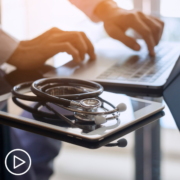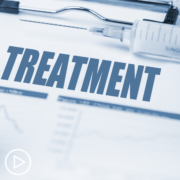Why Should Follicular Lymphoma Patients Seek a Second Opinion?
Why Should Follicular Lymphoma Patients Seek a Second Opinion? from Patient Empowerment Network on Vimeo.
Lymphoma expert Dr. Matthew Matasar encourages patients to take an active role in their care and explains why they should feel comfortable seeking a second opinion.
Dr. Matthew Matasar is a lymphoma expert at Memorial Sloan Kettering Cancer Center and Chief of Medical Oncology at Memorial Sloan Kettering Bergen. To learn more about Dr. Matasar, visit here.
See More from The Pro-Active Follicular Lymphoma Patient Toolkit
Related Programs:

Why Is It Important for Follicular Lymphoma Patients to Be Empowered? |

|

What Is the Patient Role in Follicular Lymphoma Treatment Decisions? |
Transcript:
Katherine Banwell:
What is your advice to patients who may feel like they’re hurting feelings by seeking a specialist or a second opinion? Any advice for self-advocacy?
Dr. Matasar:
I would say there is this. Any doctor who is taking care of you and doesn’t want you to have the best information and the best options is not a very good doctor. This is never about the doctor. It’s not about me. It’s about you. And if a doctor’s ego is getting in the way of a patient getting the best care, the best options, the most modern and up-to-date available information around their illness and around how best to take care of it, that doctor better check themselves.
Similarly, the patient should understand that it’s about you. It’s not about me or your other doctors, or anything. It’s about you getting what you deserve, which is the clearest insight and the most appropriate treatment options available. And you should have no reservations in seeking that out, and honestly most oncologists are happy to have you get a second opinion, because they’ll feel more supported in your care. It’s stressful to be an oncologist sometimes too. And for you to get a second opinion from an expert and the expert says, “You know what? Yeah, your oncologist is spot-on.”
That can be very validating and reassuring. And then, that expert oncologist is a resource to your local oncologist, and they can work together in your care. Everybody works better as a team. It’s just as true for oncologists as for anybody.









